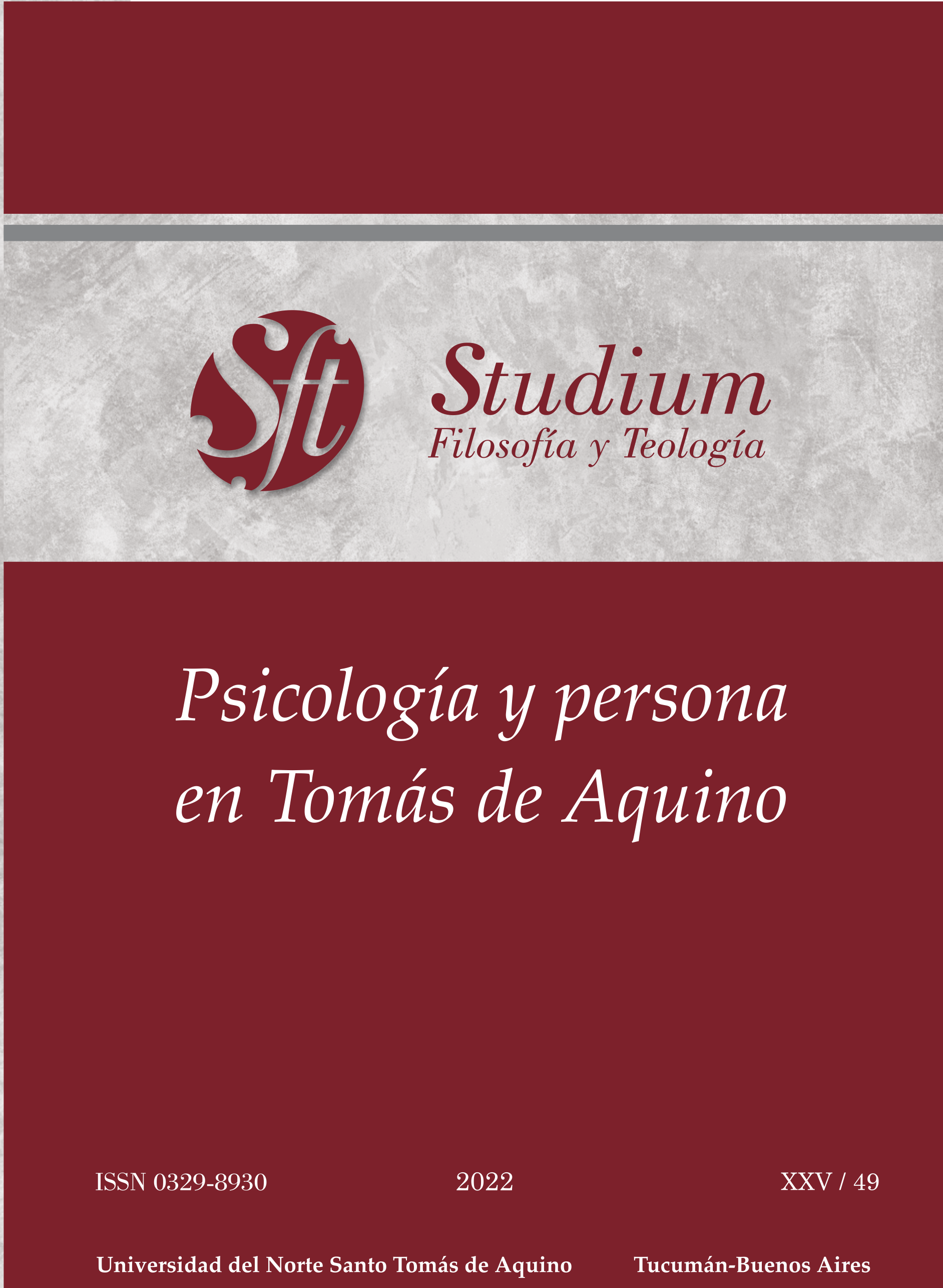Freedom in psychic life
An analysis from some authors of the contemporary Psychology and Saint Thomas Aquinas
DOI:
https://doi.org/10.53439/stdfyt49.25.2022.27-61Keywords:
freedom, affectivity, spontaneity, self-realization, personAbstract
Numerous authors from different currents of Psychology have dedicated some papers to develop the question of freedom in psychic life. Influenced by modern thought, they have not always been able to free themselfves from a distorted vision of freedom and affectivity or the latent dualism between freedom and nature. For this reason, in order to present a fair idea of the place that freedom occupies in psychic life, we will try to make a brief overview of some approaches that modernity has gestated around it and that have influenced contemporary psychology in order to capture the reasons deeper than the current situation. From there, we will try to identify, in the light of the perennial thought of Saint Thomas Aquinas, what are the deviations or errors that have characterized these positions and what is the proposal that this author makes in order to appreciate more fully the contribution that it can make psychology and understand more fully the place that an authentic exercise of freedom has in the development of affectivity.
Downloads
References
Beroch, M. A. (2016). La expresión liber est causa sui como elemento para una teoría de la subjetividad en Tomás de Aquino. Espíritu, LXV(152), 349-369. https://revistaespiritu.istomas.org/la-expresion-liber-est-causa-sui-como-elemento-para-una-teoria-de-la-subjetividad-en-tomas-de-aquino/
Catecismo de la Iglesia Católica (1997). https://www.vatican.va/archive/catechism_sp/index_sp.html
Echavarría, M. (2013). El modo de subsistir personal como reflexión sustancial según Tomás de Aquino. Espíritu, LXII(146), 277-310. https://revistaespiritu.istomas.org/modo-subsistir-personal-reflexion-sustancial-segun-tomas-aquino/
Forment, E. (2003). Persona y conciencia en santo Tomás de Aquino. Revista Española de Filosofía Medieval, 10, 275-283. https://doi.org/10.21071/refime.v10i.9268
Frankl, V. (1987). El hombre doliente. Barcelona: Herder.
Frankl, V. (1988). La presencia ignorada de Dios. Barcelona: Herder.
Fromm, E. (1985). Ética y psicoanálisis. México: Fondo de Cultura Económica.
Fromm, E. (2008). El miedo a la libertad. Buenos Aires: Paidós.
Irala, N. (1973). Control cerebral y emocional. Burgos: SalTerrae.
Iturralde Colombres, C. (1960). Diversos significados de libertad en Kant. Sapientia, XVI(55), 55-68.
Iturralde Colombres, C. (2016). La voluntad pura en Kant (inédito).
Juan Pablo II (1993). Veritas Esplendor. https://www.vatican.va/content/john-paul-ii/es/encyclicals/documents/hf_jp-ii_enc_06081993_veritatis-splendor.html
Kant, I. (1986). La religión dentro de los límites de la mera razón. Madrid: Alianza.
Kant, I. (2005). Crítica de la razón práctica. México: Fondo de Cultura Económica.
León XIII (1888). Libertas praestantissimum. https://www.vatican.va/content/leo-xiii/es/encyclicals/documents/hf_l-xiii_enc_20061888_libertas.html
Tomás de Aquino. (1952). Suma contra los gentiles. Edición bilingüe en dos volúmenes con el texto crítico de la leonina. Madrid: BAC.
Tomás de Aquino. (1995). Suma de Teología. 5 tomos. Madrid: BAC.
Tomás de Aquino. (2001). Opúsculos y cuestiones selectas. Edición bilingüe. Tomo I (Filosofía). Madrid: BAC.
Tomás de Aquino. (2003). Opúsculos y cuestiones selectas. Edición bilingüe. Tomo II (Filosofía). Madrid: BAC.
Verneaux, R. (1982). Las tres críticas. Madrid: Editorial Magisterio Español.

















